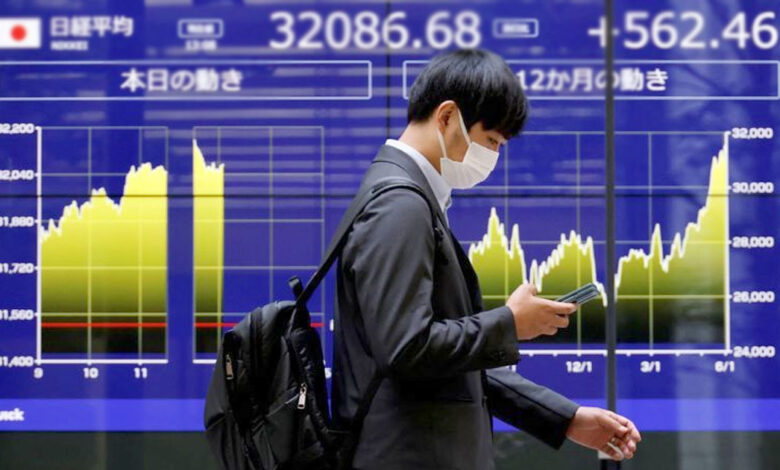Asian stocks experience gains prior to U.S. inflation data, while Japan’s market declines

On Wednesday, several Asian stocks witnessed an increase in value amidst speculations surrounding the peak of U.S. interest rates ahead of crucial inflation data. However, the Japanese markets faced a significant downturn due to weak economic indicators, leading to a considerable amount of profit-taking.
Regional stocks were buoyed by the positive performance of Wall Street overnight. Federal Reserve officials’ remarks indicating an imminent end to the current rate hike cycle contributed to the optimistic sentiment.
Nevertheless, the gains in Asian markets were somewhat restricted due to the anticipation of key U.S. Consumer Price Index (CPI) inflation data, scheduled to be released later in the day. Although a decline in overall inflation is expected, the core CPI inflation is predicted to remain persistent. Consequently, it is likely to prompt the Federal Reserve to implement further rate hikes in the near future.
Notably, Hong Kong stocks stood out during the day, with investors displaying a significant bias towards Chinese technology giants. This was driven by the belief that the Chinese government was adopting a more lenient approach towards its prominent internet companies.
Hong Kong’s Hang Seng index experienced a surge of 1.2%, leading the gains in Asian markets primarily due to the strength of heavyweight technology stocks. Shares of Baidu Inc (HK:9888) (NASDAQ:BIDU), Alibaba Group Holding Ltd (HK:9988) (NYSE:BABA), and Tencent Holdings Ltd (HK:0700) showed increases ranging from 1.6% to 3.5%.
Expectations of China winding down its three-year regulatory crackdown on local technology firms grew stronger following the imposition of a significant fine on Alibaba’s Ant Group and Tencent. Investors also speculated that the deteriorating economic conditions in China would push the government to encourage private investment in technology companies.
Additionally, other Chinese stocks listed in Hong Kong experienced advances as Chinese state media reported the possibility of Beijing implementing further stimulus measures to support the sluggish economic recovery.
However, China’s Shanghai Shenzhen CSI 300 and Shanghai Composite indexes remained relatively stable as investors continued to be cautious about direct investments in the Chinese markets.
Broader Asian markets witnessed modest gains, although investor anxiety remained prevalent ahead of the U.S. CPI reading. South Korea’s KOSPI saw a marginal increase of 0.2%, while Australia’s ASX 200 rose by 0.4%.
Indian stocks were expected to open on a positive note based on the Nifty 50 futures, driven by optimism surrounding the Indian economy and the significant presence of technology companies. The Nifty 50 and BSE Sensex 30 had reached record highs earlier in the week. Indian markets were also eagerly awaiting the release of local CPI data later in the day.
In contrast, Japanese stocks experienced a decline, making them the worst performers in Asia for the day. The Nikkei 225 index dropped by 0.7%, while the broader TOPIX shed 0.6%. Both indexes moved further away from the 33-year highs recorded earlier in the month and reached one-month lows.
The weak economic data from Japan triggered another round of profit-taking in local stocks. Disappointing machinery orders, easing factory inflation, and a rising unemployment rate raised concerns about the resilience of the Japanese economy.
Furthermore, the surge in the value of the yen added pressure to export-oriented Japanese stocks.





